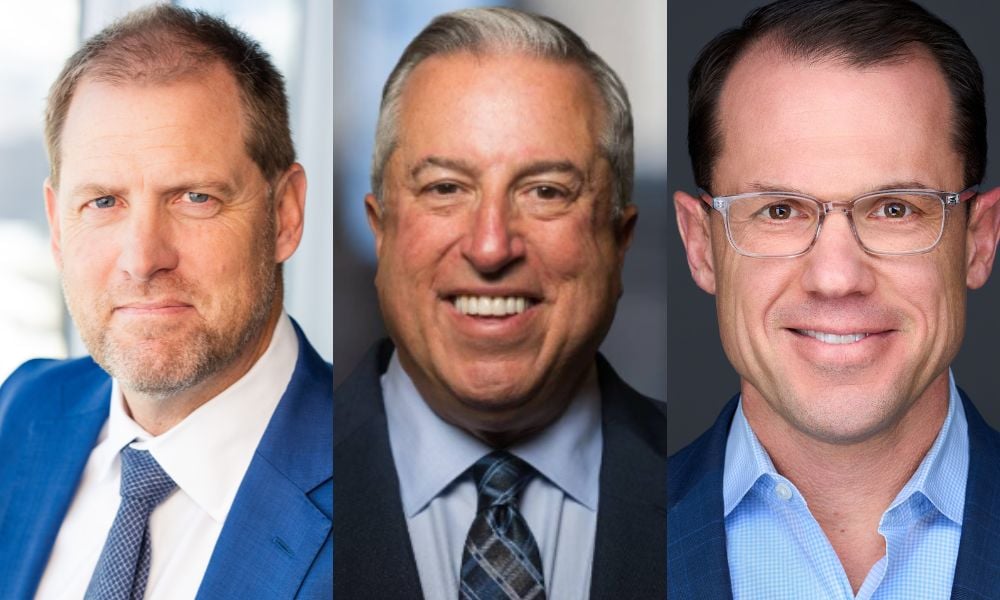

Advisors are making a succession planning list and checking it twice.
After all, “succession planning is a huge deal,” said Ryan Halliday, managing partner at Crewe Advisors.
“One of the things the SEC investigates in their examinations [of firms] is what your succession plan is. We have a fiduciary responsibility to take care of the clients of the firm, and part of that is making sure there's a succession plan in place,” he said.
“It’s important that you build your firm, or as you're managing your book of business, you’re considering the qualities and the capabilities of people.”
Despite the industry discussing succession planning for the past decade, many firms still struggle to adequately prepare the next generation of advisors to take over the business, said Corey Kupfer. founder and managing partner of Kupfer, a law firm that specializes in RIAs.
"Succession planning should be high on the list of priorities, and it generally isn’t," he said.
A common mistake is not starting early enough, said Dave Geibel, president at Girard, a Univest Wealth Division.
Advisors should start succession planning far earlier than they think they need to, ideally at least a decade before anticipated retirement, he said.
This allows time to gradually introduce the next-generation advisor, transfer responsibilities, and ensure a seamless handoff of client relationships.
“From an advisor standpoint, if your firm isn't skewing younger over the next 10 years, then something's off," Geibel said. "You need that balance."
Meanwhile, some firms are already tackling succession planning through retirement and monetization programs.
Snowden Lane Partners announced last week the firm’s practice continuation plan, which offers a structured succession solution for advisors nearing retirement. This includes combining upfront practice monetization, a five-year revenue-sharing model, and enhanced support for successors.
Retiring advisors can receive up to 250 percent of their trailing 12-month revenue, while inheriting advisors benefit from a phased revenue-sharing structure.
The program also includes provisions for business continuity in the event of a retiree's death, offering added financial security.
The influx of private equity capital and continued high level of M&A activity in the space has provided a “temporary solve" for the lack of internal succession planning at some firms, Kupfer said. Founders who haven't groomed a next-gen team have been able to pursue external sales.
He also warned this isn’t something to get used to, as “firms that have next gen are much more valuable than firms that don't.”
"Even though there's an exit opportunity, the enterprise value, the valuation and your need to stay on for longer period of time, as a founder, is all affected if you don't have a G2,” Kupfer said.
One part of a successful succession plan is ensuring a smooth transition of client relationships during succession planning, Geibel said.
He suggested framing the transition as being about the next-gen advisor taking over, rather than just the current advisor retiring. This makes it less about the current advisor's interests and more about ensuring continuity for the clients.
“What's in it for that next gen is they can move into a more senior role with more income. Maybe it's a bigger opportunity at a different firm. But if you don't have that in place, then it's going to be a much more challenging chance to retire or walk away from the practice,” Geibel said.
Firms should look to implement creative compensation and equity structures to keep these next-gen talent engaged and motivated, Kupfer said.
This could include profit sharing plans, phantom equity, or even an ownership stake through a profits interest model.
"If you give them a vehicle that doesn't align with what motivates them, then you're giving them something that's not going to achieve the objectives you want," he said.
Despite there being “really talented and capable young people in the industry,” Halliday said advisors should be patient.
“It's going to be very difficult for a 25-to-27-year-old to feel comfortable advising a wealthy family, and it's going to be hard for the wealthy family to feel comfortable with them,” he said.
“The key will be how patient they can be from the time they get into the industry to the time they really become a primary on a relationship.”
“There's a lot of opportunity because so many advisors are transitioning over the next five or 10 years. There's going to be a lot of client movement. If the next gen can place themselves in the right firm and are patient enough, they're going to have a huge opportunity to build a really nice business,” he said.

By listening for what truly matters and where clients want to make a difference, advisors can avoid politics and help build more personal strategies.

JPMorgan and RBC have also welcomed ex-UBS advisors in Texas, while Steward Partners and SpirePoint make new additions in the Sun Belt.

Counsel representing Lisa Cook argued the president's pattern of publicly blasting the Fed calls the foundation for her firing into question.

The two firms violated the Advisers Act and Reg BI by making misleading statements and failing to disclose conflicts to retail and retirement plan investors, according to the regulator.

Elsewhere, two breakaway teams from Morgan Stanley and Merrill unite to form a $2 billion RIA, while a Texas-based independent merges with a Bay Area advisory practice.
Orion's Tom Wilson on delivering coordinated, high-touch service in a world where returns alone no longer set you apart.
Barely a decade old, registered index-linked annuities have quickly surged in popularity, thanks to their unique blend of protection and growth potential—an appealing option for investors looking to chart a steadier course through today's choppy market waters, says Myles Lambert, Brighthouse Financial.
